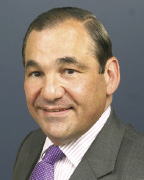Part 1 appeared in the September 13th edtition of NEREJ in the Financial Digest section.
A taxpayer qualifies as a "real estate professional" if he, or she, spends more than half of their time performing personal services in "real estate trades or businesses" in which they "materially participate," and, such time is more than 750 hours.
Many of our clients have trouble meeting the "material participation" standard without what is referred to as an "aggregation election."
Advantages of the Real Estate Professional: Generally speaking, making an "aggregation election" in order to qualify as a "real estate professional," prior to 2013, was advantageous when a taxpayer had sizeable suspended passive losses from rental real estate activities that could not be used for extended periods of time because they did not have sufficient passive income to absorb such losses. And then it was only advantageous if the taxpayer had sufficient "non-passive" income from sources, such as interest, dividends and salaries, etc., in excess of itemized deductions, to absorb the losses if characterized as" non-passive". Otherwise, all that would be achieved is the conversion of a taxpayer's suspended passive losses into a "net operating loss" (NOL) carry forward, and for residents of states that do not allow individuals to carry forward NOL's, such as Massachusetts, that would not be a good result. There can be other disadvantages of qualifying as a "real estate professional." For instance, a taxpayer's rental real estate activities are also treated as one activity for purposes of determining when passive losses, suspended before the election to aggregate, are triggered under the "disposition of an entire activity" rule. As a result, such losses may not be triggered and would have to be carried forward until the taxpayer disposes of all their rental activities.
The Landscape Changes with Code Section 1411: With the 3.8% Medicare tax on "net investment income" taking effect in 2013 the landscape changes. We now have to revisit whether the "aggregation election" makes sense for those taxpayers that have passive income from rental real estate activities. Unfortunately, new Section 1411, which imposes the tax on "net investment income," for taxpayers with income above certain thresholds, leaves a lot of uncertainty as to when income from rental activities will or will not be subject to the tax.
While it is clear that the net income from a rental activity must be characterized as "non-passive" in order for it to be excluded from the definition of "net investment income", such characterization is not all that is required. Section 1411 also imposes a requirement that such income be "derived from a trade or business" under the meaning of Section 162. However, there is currently no clear guidance (or consensus among practitioners), as to when a rental activity constitutes a trade or business under Section 162.
Conclusion: New Section 1411 may make many real estate professionals with passive income reconsider whether to aggregate activities to minimize the new 3.8% tax. However, because this Section 1411 benefit only applies if the rental real estate rises to the level of a Section 162 trade or business, this exception may not apply for everyone. Moreover, for Real Estate Professionals that are involved in passive real estate investments, such as a ground lease, availing themselves of this exception may mean the need to consider disclosing this "trade or business" uncertainty on their return. Otherwise, they may risk being subject to a "substantial understatement" penalty for taking a position for which "substantial authority" does not exist.
Dennis Pellecchia, CPA is chairman, president and CEO of Braver PC, Needham Mass. John Britto, CPA is a manager at Braver PC, who contributed to this article.
Tags:
Real Estate professional and 3.8% tax on net investment income - Part 2
October 10, 2013 - Financial Digest








